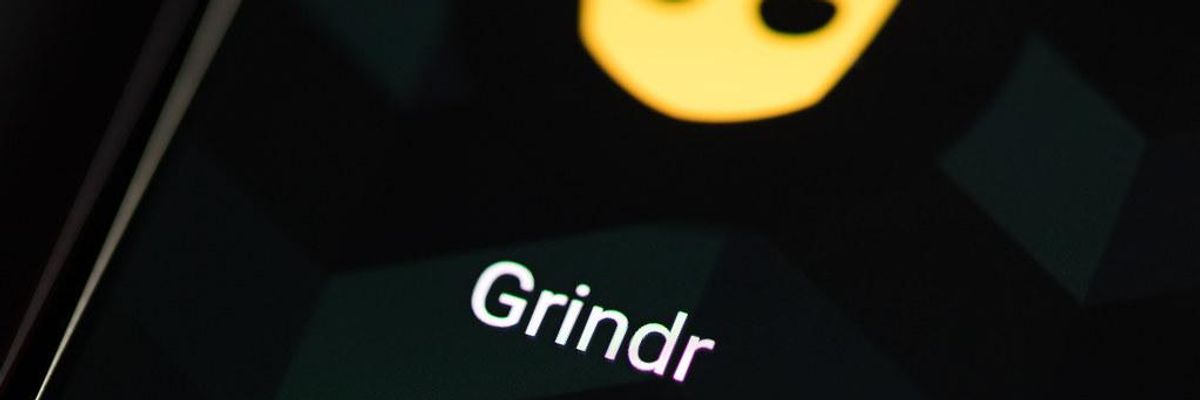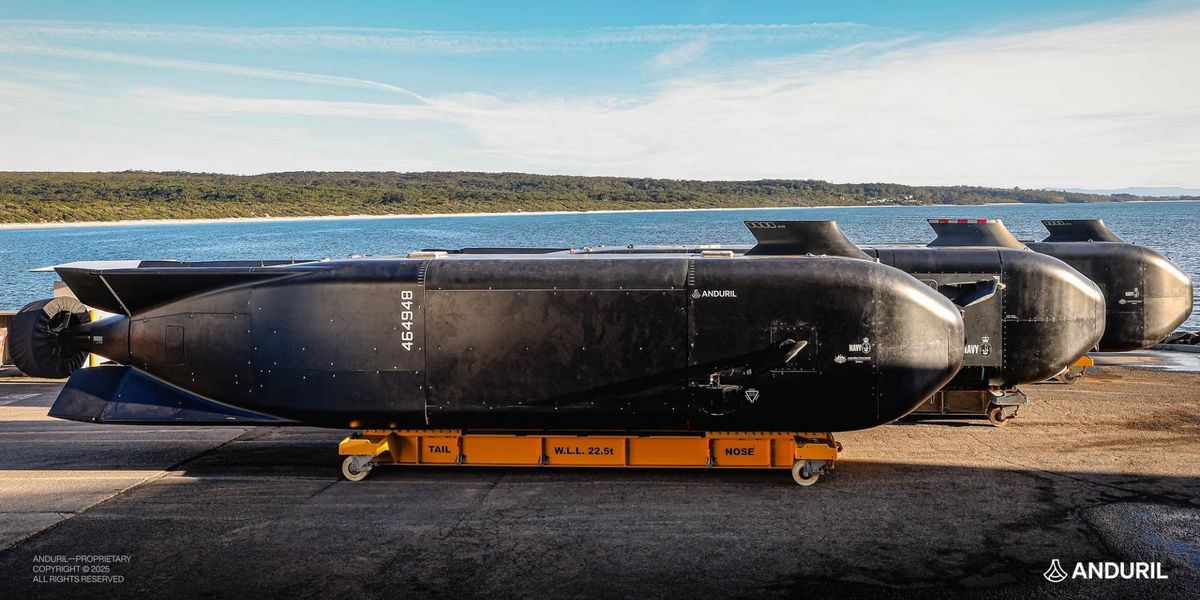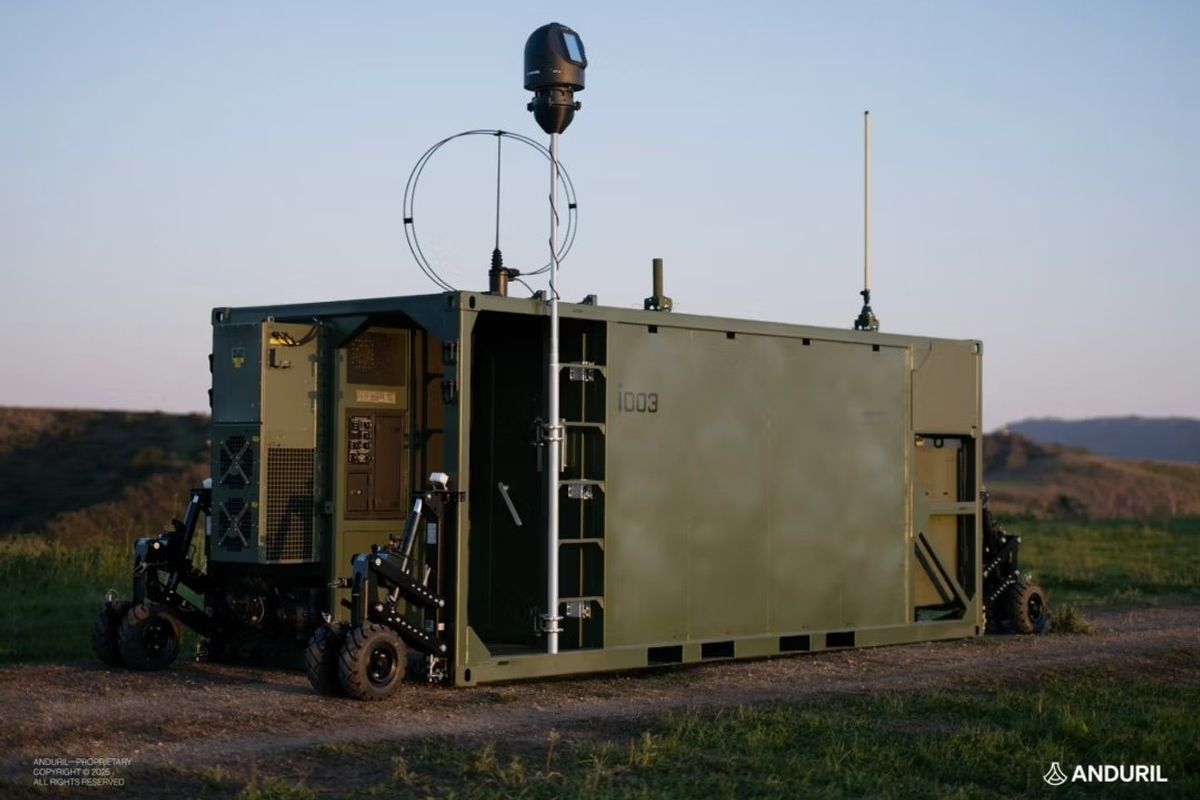

Get in the KNOW
on LA Startups & Tech
X
Ivan Radic/Flickr
Dating App Grindr Is Going Public Via SPAC Deal
Samson Amore
Samson Amore is a reporter for dot.LA. He holds a degree in journalism from Emerson College. Send tips or pitches to samsonamore@dot.la and find him on Twitter @Samsonamore.
Queer dating app Grindr is planning to go public by merging with a Singapore-based blank-check company in a deal that would value the company at roughly $2.1 billion.
West Hollywood-based Grindr said Monday that it has agreed to merge with Tiga Acquisition Corp., a special purpose acquisition company (SPAC) trading on the New York Stock Exchange. Grindr plans to raise at least $384 million from the transaction, with plans to use the funds to pay down debt and further grow its business.
Since launching in 2009, Grindr has grown to around 11 million monthly active users globally, roughly 80% of whom are under 35 years old. The app, which is free to download on iOS and Android devices, has emerged as the queer community’s most popular answer to the Match Group-owned Tinder, which caters primarily to straight singles. Grindr does compete with other queer dating apps including HER, mainly used by lesbian women; Lex, for queer users; and Feeld, an app for polyamorous connections.
Grindr said it generated $147 million in revenue last year, a 30% increase from the year prior. That revenue growth was fueled by an increase in the number of users paying for the app’s premium subscription, which totaled 723,000 at the end of 2021—up 31.5% year-on-year.
Grindr is pursuing a SPAC merger despite a sharp slowdown in SPAC deals amid heightened regulatory scrutiny, as well as a wider stock market correction that has pumped the brakes on IPO deal volume this year. Still, SPAC deals remain a quicker way for companies to list on public markets by side-stepping much of the regulatory red tape around traditional IPOs.
The app recently came under fire after a Wall Street Journal article exposed Grindr’s years-long practice of selling users’ precise location data to the highest bidder—a practice that runs the risk of outing some users’ sexuality and compromising their safety. The company countered the report by claiming it had implemented new privacy policies to prevent the sharing of “precise location” data.
From Your Site Articles
- Grindr Removed From Chinese App Stores - dot.LA ›
- LA Tech ‘Moves’: Grindr Taps New CEO - dot.LA ›
- Hinge Tests $60 Premium Subscription, WIll Gen Z Pay? - dot.LA ›
Related Articles Around the Web
Samson Amore
Samson Amore is a reporter for dot.LA. He holds a degree in journalism from Emerson College. Send tips or pitches to samsonamore@dot.la and find him on Twitter @Samsonamore.
https://twitter.com/samsonamore
samsonamore@dot.la
$160M Tugboats and Undersea Drones: LA Startups Are Raising the Stakes
10:18 AM | September 12, 2025
🔦 Spotlight
Happy Friday LA,
This week’s headlines take us from the ocean floor to the docks of Long Beach, with LA companies leading the charge.

Let’s start with Anduril Industries, which rolled out three major announcements that underline just how quickly it is expanding its footprint across defense tech. The biggest milestone came from Ghost Shark, an extra large undersea drone developed in partnership with the Australian Navy. After just three years, it has moved from prototype to an official program of record, an unusually fast turnaround in an industry where procurement often takes decades. It marks a significant step for autonomous systems under the sea, an area where defense agencies have long struggled to innovate.

The company also revealed Menace I, a ruggedized system designed to bring petabyte scale processing power directly to the battlefield. Think of it as cloud computing without the cloud, giving troops the ability to process massive amounts of sensor data and video on site rather than relying on faraway servers. And finally, Anduril landed a contract to create mixed reality training tools, using immersive simulations to prepare service members for missions more effectively. Training has always been one of the costliest and most logistically challenging aspects of defense, and bringing advanced MR into the mix could transform how quickly and safely soldiers can get mission ready. Together, these updates show an LA company moving fast across land, sea and even into the training ground.

Meanwhile, Arc is proving that electrification is not just for cars and yachts, it is now heading into some of the hardest working vessels on the water. The Venice based startup announced a $160 million deal with Long Beach’s Curtin Maritime to deliver eight hybrid electric tugboats. Tugboats are the muscle of the harbor, guiding massive cargo ships in and out of ports, and they usually burn through enormous amounts of diesel. Arc’s push into this space signals more than just a big contract. It is a pivot from building high performance electric speedboats for early adopters to tackling one of the most carbon heavy corners of maritime work.
The scale of this deal shows how far Arc has come since launching just a few years ago. Building hybrid electric tugboats is not a side project, it is a sign that the company wants to play a role in reshaping the future of port operations. And if LA’s own clean tech boat builder can make a dent in one of the dirtiest industries on the water, the ripple effects could stretch far beyond the coastline.
🤝 Venture Deals
LA Companies
- Apex Space closed a $200M Series D round led by Interlagos, with participation from existing investors including Andreessen Horowitz, Point72 Ventures and 8VC, pushing its valuation past $1 billion. The Los Angeles based company builds satellite buses, the standardized spacecraft platforms that carry and power payloads ranging from Earth imaging sensors to missile early warning systems. With the new funding, Apex plans to increase production capacity by 50 percent and more than double its manufacturing facility as demand for space defense systems continues to grow. - learn more
- Sapphire Technologies has raised an $18M Series C round, including investment from Mitsubishi Heavy Industries along with existing backers such as Equinor Ventures, Cooper and Company and Energy Capital Ventures. The funds will be used to scale up production at Sapphire’s manufacturing facility in Cypress, California, expand global deployments of its FreeSpin In-line Turboexpanders in regions like Japan and enter new markets. Sapphire’s technology converts otherwise wasted pressure energy, often from natural gas, into clean and emissions free electricity, playing a growing role in the global energy transition. - learn more
- LocalExpress has raised $6.2M in a venture round led by OXZ Capital to expand its AI data capabilities into the grocery industry. The Glendale based platform, already serving independent grocery and food retailers across the US, Canada and Latin America, is transitioning from supporting internal operations to becoming a premier data syndication hub in the sector. This round will fuel further development of its unified commerce solutions and help scale its AI-powered systems for harmonizing transaction and inventory data. - learn more
- ProRata.AI closed a $40M Series B financing round led by Touring Capital with participation from Bold Capital Partners and others, to launch Gist Answers, a new AI-as-a-service tool for publishers. Gist Answers lets publishers embed custom AI search, summarization, and recommendation features directly on their sites while maintaining control over their content. The move is designed to help publishers increase engagement, protect their content, and unlock new revenue streams in the AI era. - learn more
LA Venture Funds
- Upfront Ventures joined a group of investors in backing Sophont’s $9.22M seed round, led by Kindred Ventures. Sophont is building multimodal medical foundation models that combine data from pathology slides, brain scans, clinical notes, and lab results to enable functionalities like symptom triage, biomarker discovery, and clinical trial cohort selection. The funding will go toward increasing compute capacity, expanding data partnerships, and recruiting researchers to accelerate the development and release of model backbones and open science infrastructure. - learn more
- Presight Capital participated in the $24M Series A round raised by TERN Group, which was led by Notion Capital. The funding will help TERN scale its AI powered infrastructure for global healthcare worker recruitment, credentialing and mobility, especially helping caregivers and nurses in places like India gain access to international job opportunities. TERN plans to use the investment to expand into new geographies, deepen training programs, and further build tools that make migration, compliance and placement faster, fairer and more transparent. - learn more
- Emmeline Ventures joined a strong syndicate in Lōvu Health’s $8M Series A round, led by SJF Ventures. The funding will support Lōvu in scaling its AI-powered maternal health platform, enhancing remote monitoring, curated specialist services, and ongoing care from pre-conception through the first two years postpartum. With this investment, Lōvu aims to close gaps in maternal healthcare access and outcomes, especially for underserved populations. - learn more
- Integrity Growth Partners led a $28M Series A round in Pest Share, joined by existing investors including MetaProp, Capital Eleven and RE Angels. Pest Share is an on-demand pest control platform tailored for residential property managers, operating in all 48 states and serving 300,000 residential units. The capital will fuel expansion in single-family and multifamily rental markets, enhance product innovation, and deepen integrations with property management systems. - learn more
- Mantis VC joined Forerunner Ventures, Neo, Abstract and several angel investors in backing Hero Assistant’s $3.5M seed round at a $30M valuation. Hero Assistant is building a “Daily Assistant” super-app that consolidates things like calendars, weather, tasks, habits, goals, grocery ordering, notes and news, already replacing up to eight separate apps for its more than 300,000 users. The funds will help the company enhance features, scale growth, and deepen its reach in productivity. - learn more
- Wedbush Healthcare Partners took part in Odyssey Therapeutics’ oversubscribed $213M Series D financing round alongside both new and existing investors. The funding will be used to push forward Odyssey’s pipeline of clinical and preclinical therapies focused on treating complex autoimmune diseases. With this capital raise, Odyssey aims to make progress toward key clinical milestones and bring precision immunomodulation treatments closer to patients in need. - learn more
- BroadLight Capital participated in Higgsfield’s $50M Series A round, which was led by GFT Ventures and also backed by firms like Menlo Ventures and NextEquity Partners. Higgsfield is pushing its “click-to-video” AI platform, which lets users turn curated presets into cinematic clips with a single click rather than wrestling with complex prompts. In only five months since launch, the company has already drawn over 11 million users and more than 1.2 billion social media impressions, signaling strong momentum in the creator video space. - learn more
- Impatient VC participated in Sphinx’s $9.5M Seed round, which was led by Lightspeed and also included investors like Bessemer Venture Partners, Box Group, and K5. Sphinx is launching an AI copilot built especially for data scientists, one that thinks in statistics and patterns to turn raw data into actionable insights without skipping rigor. The funds will go toward refining tools that integrate into workflows like Jupyter notebooks and VSCode so data teams can explore, model, and make decisions faster. - learn more
- WME Group led a $20M Series B round in Palm Tree Crew, valuing the company at $215 million. The funding will power expansion across its hospitality venues, live events, and lifestyle ventures while leaning into WME’s entertainment, licensing, and brand network. Palm Tree Crew plans to scale its properties, deepen its festival footprint globally, and continue growing its portfolio of consumer brands as part of the next chapter. - learn more
- Blue Bear Capital participated in Nuclearn’s $10.5M Series A round that helps the company deepen its AI-capabilities for nuclear operations. Nuclearn, founded by engineers who've worked inside power plants, builds specialized tools like CAP AI to automate safety-critical, documentation-heavy tasks and ensure regulatory compliance. The funding will support product expansion, talent hiring, and scaling its platform to more reactors worldwide. - learn more
- Amplify was one of the investors joining Endurance28 and others in Cascade Bio’s $6M raise, which includes $2.8M in equity and $3.2M in nondilutive funding. Cascade Bio is advancing its enzyme-immobilization technology to help industrial partners transition from petrochemical processes to greener, biomanufacturing workflows. The funding will enable Cascade to scale its high-stability biocatalysts for use across chemicals, food ingredients, fragrances, and pharmaceuticals. - learn more
LA Exits
- Northstar has been acquired by Nayya, combining Northstar’s financial wellness tools with Nayya’s health, compensation and actuarial data platform. The unified offering introduces a “SuperAgent,” an AI adviser that not only helps employees understand benefits but, with their permission, can take actions like auto enrolling in wellness programs or appealing denied claims. The goal is to make health and wealth benefits simpler, more transparent and more useful year round rather than just during open enrollment. - learn more
- Integrated Rental Systems has been acquired by VitalEdge Technologies, a major provider of dealer management software for heavy equipment. Integrated Rental’s platform is considered one of the most advanced in its field, and this deal allows VitalEdge to offer more fully integrated solutions covering rental, parts, and service revenue streams for equipment dealers. Alise Moncure, CEO of Integrated Rental, will join VitalEdge’s leadership team as President of Expansion Markets, leading rental and other high-growth segments. - learn more
- VideoVerse has been acquired by Minute Media, bringing its AI-powered sports video platform Magnifi into the company’s portfolio. Magnifi helps leagues, teams and publishers automatically detect key moments, create instant highlights and distribute short-form video content more efficiently. With the acquisition, Minute Media is expanding beyond publishing to offer a more complete solution for video creation, distribution and monetization. - learn more
- Bespoke Treatment has been acquired by Stella Mental Health, expanding the company’s services in Los Angeles. Known for its integrative approach, Bespoke offers treatments such as stellate ganglion block for trauma, IV ketamine, Spravato® and intensive outpatient programming. Through the acquisition, Stella is broadening its footprint and strengthening its ability to deliver personalized behavioral health care. - learn more
Read moreShow less
More SPAC Action: Tech Company Using Gravity to Store Energy Inks $1.6 Billion Deal
12:56 PM | September 09, 2021
Energy Vault, a startup that uses gravity and composite blocks heavier than a school bus to store renewable energy, plans to go public in a $1.6 billion merger with a special purpose acquisition company (SPAC).
The combined entity — consisting of the Westlake Village, Calif.-based clean energy startup and a shell company called Novus Capital Corp. II — aims to list on the New York Stock Exchange under the ticker "GWHR." The companies expect the deal to close during the first quarter of 2022.
Energy Vault's tech was developed to help utilities "solve the problem of power intermittency that is inherent with wind and solar energy generation," said Robert Piconi, the clean energy company's CEO and co-founder in an announcement of the deal.
In its search for a business to take public, Novus CEO Robert Laikin said the blank-check firm "looked at over 100 companies."
Earlier this year, another SPAC set up by Laikin took AppHarvest public. The firm builds gigantic greenhouses and was at one point valued at $1 billion. AppHarvest's market cap currently hovers around $770 million.
These mergers are part of a larger trend that has drawn scrutiny from regulators, shareholders and lawmakers alike. Sen. John Kennedy introduced a bill earlier this year that would force SPACs to be more transparent with investors. "It's right and fair that a SPAC should disclose how its sponsors get paid and how that affects the value of its public shares," the Senator argued. "The Sponsor Promote and Compensation Act would require this kind of transparency," he added.
What is a SPAC?
From Your Site Articles
- Upfront Summit: Bill Gross on Climate Change and Venture Capital ... ›
- Thin Line Capital's Aaron Fyke on Clean Tech Investing - dot.LA ›
Related Articles Around the Web
Read moreShow less
Harri Weber
Harri is dot.LA's senior finance reporter. She previously worked for Gizmodo, Fast Company, VentureBeat and Flipboard. Find her on Twitter and send tips on L.A. startups and venture capital to harrison@dot.la.
RELATEDTRENDING
LA TECH JOBS


